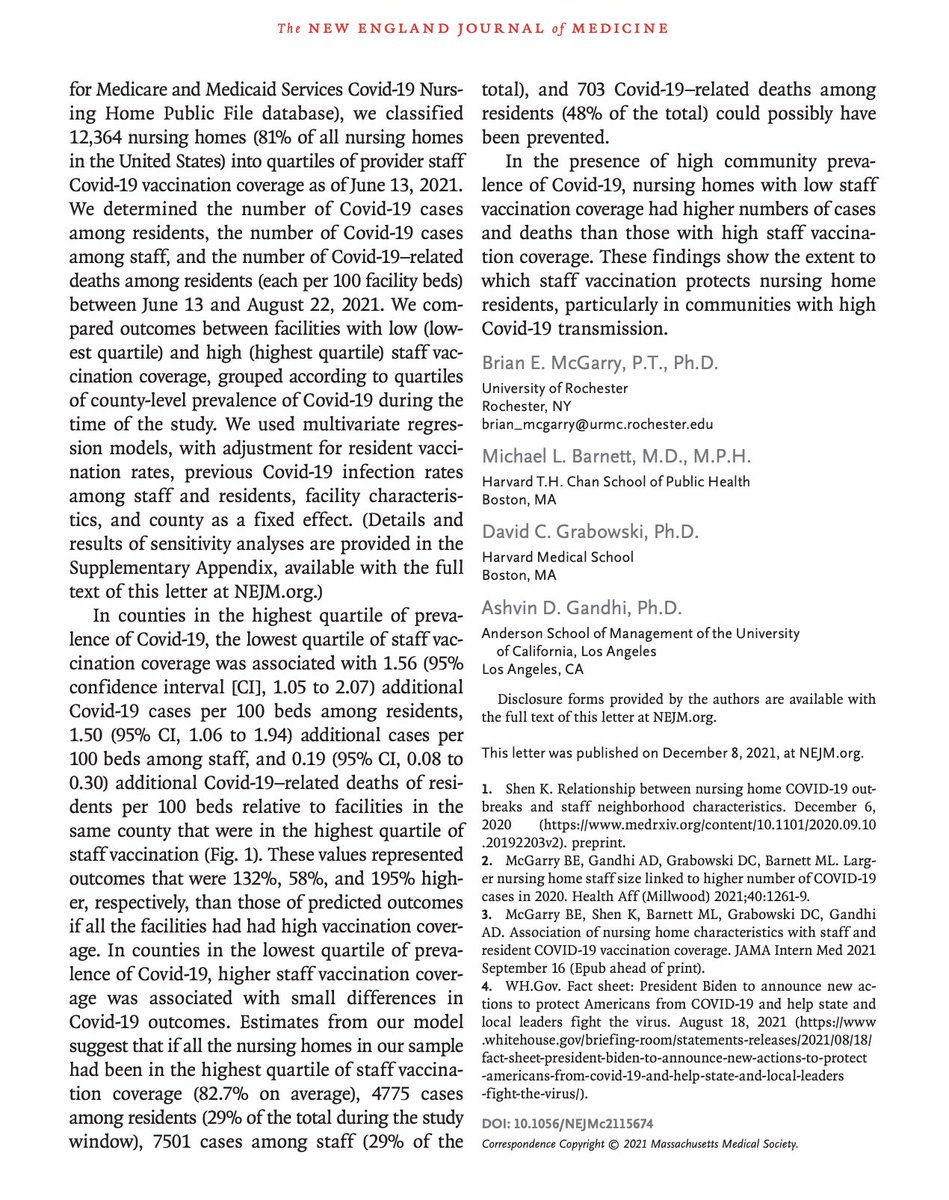
New work in @JAMA_current today - who has been getting those precious monoclonal antibody infusions for COVID-19 in the US?
It's not pretty ...
Work led by @CarolineLBehr with @kejoynt @ermeara Arnie Epstein and John Orav.
jamanetwork.com/journals/jama/…


It's not pretty ...
Work led by @CarolineLBehr with @kejoynt @ermeara Arnie Epstein and John Orav.
jamanetwork.com/journals/jama/…



@JAMA_current @CarolineLBehr @kejoynt @ermeara We identified 1.9 million cases of COVID-19 in Medicare claims without hospitalization/death in the first week.
In nearly every case, those at higher risk of dying from COVID-19 were LESS likely to get monoclonal antibodies (mAbs).
jamanetwork.com/journals/jama/…
In nearly every case, those at higher risk of dying from COVID-19 were LESS likely to get monoclonal antibodies (mAbs).
jamanetwork.com/journals/jama/…
@JAMA_current @CarolineLBehr @kejoynt @ermeara Overall, 7.2% of Covid cases got mABs.
But the variation by demographic group is extreme.
0 chronic conditions: 23.2%
6+ chronic conditions: 4.7%
No Medicaid: 8.1%
Medicaid eligible: 4.6%
White: 7.4%
Black: 6.2%
No dementia: 7.8%
Dementia: 3.7%
But the variation by demographic group is extreme.
0 chronic conditions: 23.2%
6+ chronic conditions: 4.7%
No Medicaid: 8.1%
Medicaid eligible: 4.6%
White: 7.4%
Black: 6.2%
No dementia: 7.8%
Dementia: 3.7%
@JAMA_current @CarolineLBehr @kejoynt @ermeara I was also shocked at how much mAb distribution varied across the country.
In the South, 10.6% got mABs while in the Western states, only 2.9%!
In Rhode Island and Louisiana 24.9% and 21.2% got mAb, but 1% or less in Alaska and Washington.
I think that's crazy

In the South, 10.6% got mABs while in the Western states, only 2.9%!
In Rhode Island and Louisiana 24.9% and 21.2% got mAb, but 1% or less in Alaska and Washington.
I think that's crazy


@JAMA_current @CarolineLBehr @kejoynt @ermeara Bottom line: mAb therapy did NOT get to those who needed it most in many, many places in the US from Nov 2020-Aug 2021.
Why? Getting mAb is extremely complex and has to be done quickly.
@CarolineLBehr and I discuss more in a piece in @statnews today.
statnews.com/2022/02/04/hig…
Why? Getting mAb is extremely complex and has to be done quickly.
@CarolineLBehr and I discuss more in a piece in @statnews today.
statnews.com/2022/02/04/hig…
@JAMA_current @CarolineLBehr @kejoynt @ermeara @statnews Read the whole paper at @JAMA_current here:
jamanetwork.com/journals/jama/…
And thanks to my wonderful co-authors and @NIHFunding from National Institute on Aging for supporting this work.
Keep an eye out for MS4 @CarolineLBehr in the future :)
jamanetwork.com/journals/jama/…
And thanks to my wonderful co-authors and @NIHFunding from National Institute on Aging for supporting this work.
Keep an eye out for MS4 @CarolineLBehr in the future :)
• • •
Missing some Tweet in this thread? You can try to
force a refresh

















